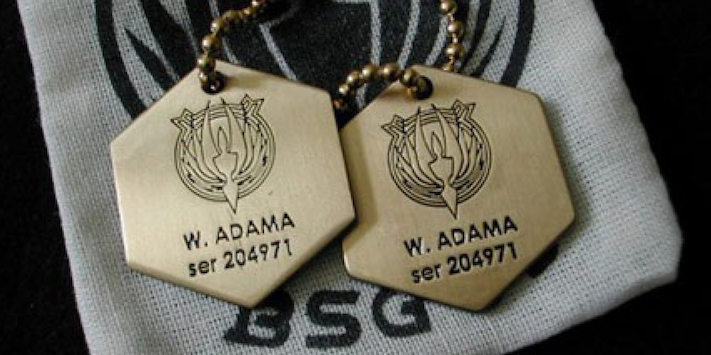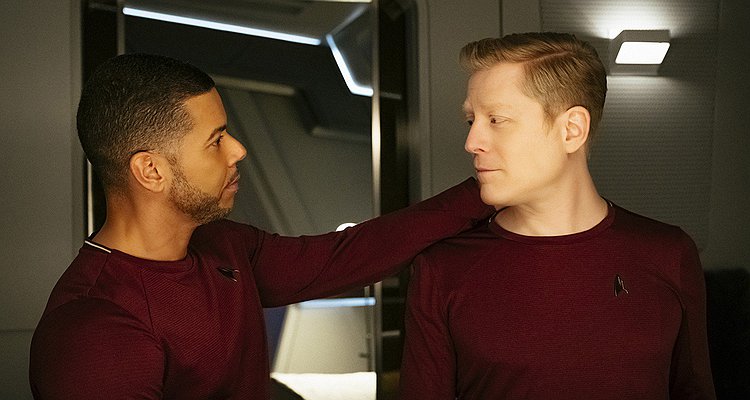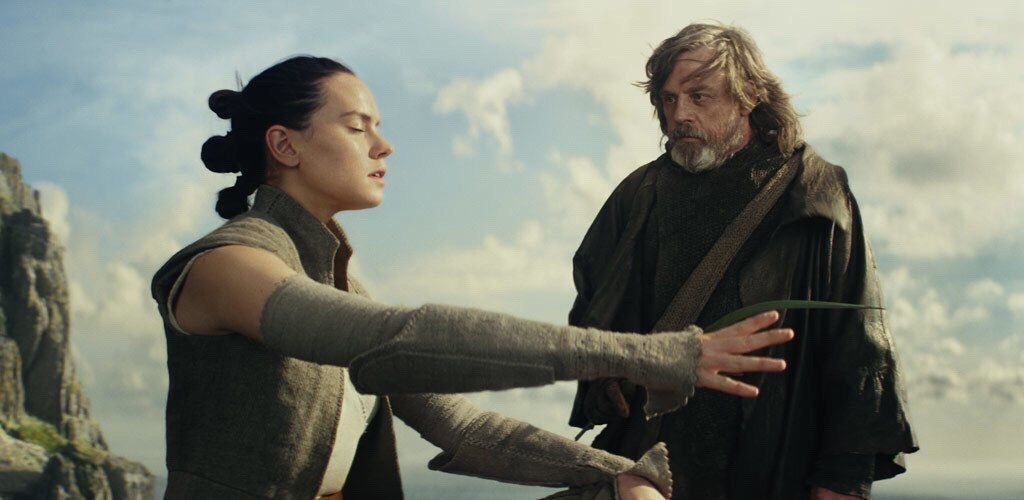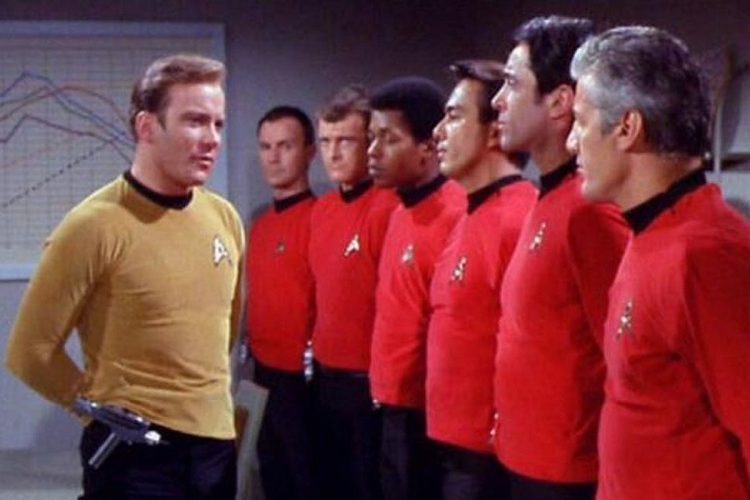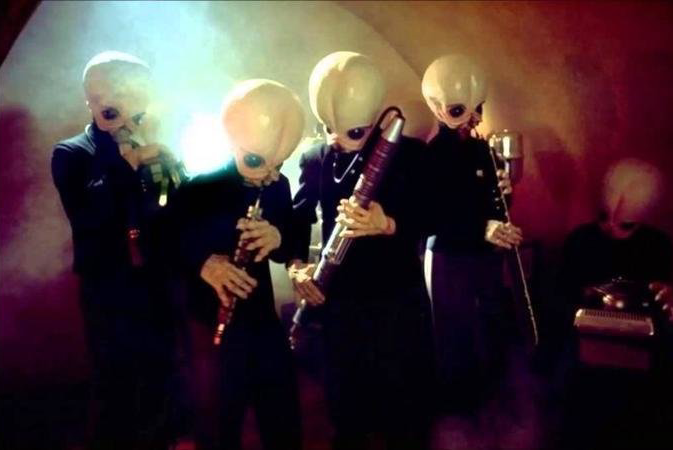Choosing names for your characters is a long, arduous and sometimes painful process. After all, not everyone can be born into the majestic Stossenbaum-Alkaseltzer bloodline. Below you’ll find 10 things to keep in mind when you’re trying to find the right names for your characters!
Meaning of Names
There are many names, and all of them have a meaning behind them. Whether that’s a reference to a historical figure, or a dead language, or some sort of natural occurrence. This meaning is important, even if it doesn’t mean anything to the character themselves. Other characters might pick up on the meaning, or associate it with something. Even when you’re writing a fictional race, where the name stems from a fictional language, you should know what it stands for.
How not to do it:
– Amani Columba, the man raised as a Klingon, now Security officer with a short fuse
– Dara Wiseman, the bar owner’s idiot cousin that’s only kept around because his sister would never forgive him for firing her precious little boy
How to fix it:
Do some research, go buy a names book, or search the web. There’s plenty of resources out there that would give you more suggestions than you can ever handle.
– Arwen, stems from Welsh and means Fair
– William, this is a compound name made up of two words, “wil” meaning “will or desire” and “helm” meaning “helmet, protection”, perfect for strong-headed characters.
– Starbuck, is derived from the name of the first mate of the ship Pequod in the book Moby Dick
Readability
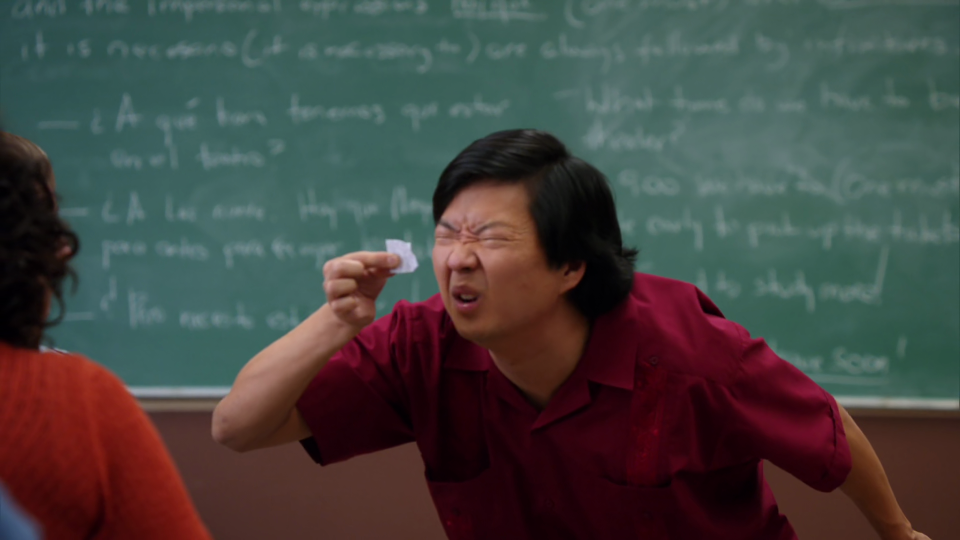
When it comes to writing, one of the things that should always be at the top of your mind is Readability. We know that some of the species in your favourite science fiction have a tendency to have complicated names. Elves, for example, are known for their longwinded names and eager use of the apostrophe. Same goes for Andorians in Star Trek. When you write a post, keep in mind that the name will be used every now and again. How often would you actually read the name Lieutenant Jhyria Sh’vhaotrihr, and at what point would you just gloss over it and in your mind say ‘Lieutenant thingy’. An exotic name is great, and it adds something to the experience to have a character with a race appropriate name, make sure that it’s easy to read.
How not to do it:
– Mazlmuxz Axkuenzi’al
– Qwaintrili-ishtaklnas
How to fix it:
Consider what it is you’re going for in the name, and try to emulate the look and feel of the name without resorting to an exotic combination of letters, accents and combination of vowels.
– Mazlmuxz Axkuenzi’al -> Mazzul Muuks Akenziyal
– Qwaintrili-ishtaklnas -> Kwantrili Estakkelnas
Reading out loud
Next to readability, it’s important to know what the name sounds like when spoken out loud. Most people will hear the words they read in their heads, if that creates an awkward sound, or could be interpreted multiple ways, it’ll take them right out of the story. In addition, names with odd letter combinations might give people difficulty understanding what you want the name to sound like.
How not to do it:
– Aimin Trebble
– Kang Grang
– Tishanqtual
How to fix it:
Read it out loud, see what’s tripping you up, fix those things. If a name sounds like something weird, change the last name. If the sounds following each other don’t really gell, change the vowels or add a consonant. Don’t know how a certain pronunciation would be written out? Use Speech to text and see what technology comes up with.
– Aimin Trebble -> Aimin Rebel
– Kang Grang -> Kangy Grang
– Tishanqtual -> Tissanktal
Choose names that are Writable
If both the readability and the sound are not taken into account it becomes more and more difficult to write the name. If it becomes difficult to write a name, people writing with you might have difficulty (or an aversion) to writing the name out in their own posts and tags. Consider this, if you want to reference another character in your writing, and that writer is called Kishttirryn’tal Iq’nazdial, how often would you take the effort to either write it out of copy it over?
Yeah. Didn’t think so.
How not to do it:
– Kishttirryn’tal Iq’nazdial
– L’Ørién Ancàlimë
How to fix it:
Keep names short and sweet. Split up the name. If you insist on a long name, make it possible (and acceptable to the character) to refer to the character with an abbreviation. When it comes to accents in English writing, less is more. Consider the sounds and feels you’re going for and write them out phonetically.
– Kishttirryn “Kish” Iq’naz Dyal, can be referred to by last name Dyal (with or without rank) or by their nickname Kish
– Luriyen Ancallime, similar look and feel, a lot easier to write for yourself and your writing buddies
Cultural and social background
Certain cultures have a preference for certain naming conventions. When it comes to American presidents they always seem to have (or devise) a middle initial. Those born from a more Nordic stock might be someone’s -son or -dottir. In the Russian languages girls are granted an additional -a after the name (Petrov > Petrova). Add to this the reflection of social status in names and you’ll find that Samantha de Witt-Bukator van Baarle-Nassau II is unlikely to share a postal code with Shanice Pouncey.
How not to do it:
– Precious Lee
– Thor Kristinsdottir
How to fix it:
Keep the cultural and social norms of the character’s background in mind when giving them the name. It can be very refreshing to see someone buck the trend, but the thing is people are social animals. We are susceptible to trends and hypes and peer pressure.
– Precious Williamson
– Amida Lee
– Thor Kristinson
– Freya Kristinsdottor
Era

Fritz von Stossenbaum Alkensaltzer, PhD
The popularity of names comes and goes with the generations and with the era. Just have a look at the census pages for your country, or the USA. Names that were popular in the 1900s (Joshua not ranked, Margaret ranked 3rd) might not be so popular in the early 2000s (Joshua ranked 3rd, Margaret: ranked 137th). That’s not to say people with these names don’t exist in their respective eras, it just means that there’s a lot less of them. It says something about them. And for better or for worse, it might make them stand out (or blend in). Also, keep in mind that names might have changed from predominantly masculine to feminine and vice versa. An example of this is Sandy.
How not to do it:
– Alyssa Wilde, the sweet old lady that would order 12 boxes of chocolate mint cookies
– Emmett Phillips, the teenage punk rocking skater kid at the mall
How to fix it:
– Margaret Plymouth, the lovely elderly woman from down the road
– Blaze Fyrken, the teenage ne’er do well from around the corner
(in)Famous names
Due to the influence of people in the past, some names have become highly popular. Others might’ve lost a bit of their shine. Very few people will, nowadays, call their kid Adolf, all the while people conceived in the seventies have a higher likelyhood of being called John, Paul, George or Ringo (which I don’t expect would’ve been a very popular name prior to that decade). Consider the names that would be popular and unpopular in your respective universe. Benjamin might see an increase in popularity on Bajor, while very few would call their kids Dukat.
How not to do it:
– Sheev Smith, a scrappy nerf herder that joined the rebellion in his father’s footsteps.
– Leia Smith, a pencil-pushing Empire bureaucrat, from a long line of pencil pushers
How to fix it:
Remember that for a big part fame and infamy are all very much a matter of perspective. And all you need to do to have the names make sense is to swap around the character’s backgrounds.
– Leia Smith, a scrappy nerf herder that joined the rebellion in his father’s footsteps.
– Sheev Smith, a pencil-pushing Empire bureaucrat, from a long line of pencil pushers
Identity
The good thing about writing fictional characters is that you can cater the name to fit the person’s identity. Where in real life you’re usually stuck with whatever moniker your parents conjure up for you, your character doesn’t have to suffer the same fate!
Don’t underestimate the comedic effect of having a character with a name diametrically opposed to their identities, but don’t overdo it because it causes dissonance between what the person sounds like, what people expect them to be, and how they actually act.
How not to do it:
– Buck Rodgers, a meek librarian that has spent the last two months writing a romance novel about two librarians (one of which is called Biff Codgers) that fall in love with each other.
– Victoria Alderidge, a street rat that has been getting by on scraps and pickpocketed money since she got abandoned by her good for nothing mother at the age of 12.
How to fix it:
Again these discrepancies can happen, and there’s a lot of backstory (and dialogue) to be had in a name that doesn’t match up with the character’s identity. For this one we assume that’s not the idea though.
– Geoffrey Radcliffe, a meek librarian that has spent the last two months writing a romance novel about two librarians (one of which is called Biff Codgers) that fall in love with each other.
– Vicky Miller, a street rat that has been getting by on scraps and pickpocketed money since she got abandoned by her good for nothing mother at the age of 12.
Parents choose names
Any way you go about it, we are all children of our parents, and in most societies, the parents choose a name for you. Kids might be named after someone they know. Like a family member or a close friend. All of this adds an extra layer to the discussion we’ve had in the previous paragraphs.
Parents have hopes and dreams for their children and they can convey this in their children’s names. They also have a lot of tools at their disposal, and you can use those tools as well (if you don’t mind your search history and advertisements to show someone that’s expecting a baby). Baby naming sites, as well as baby meaning sites, are perfect for this purpose. The parents simply amplify everything that was discussed before.
Check the other character names
We know that you have a superbly crafted, totally unique, character in the wings and that you can’t wait to insert them into one of the many games available on the web. Always take a moment to have a glance at the manifest. It could get confusing if there’s three Roberts on the ship. Make sure your character name stands out enough to be recognisable, but also fits in with the tone of the game you’re joining. If the game is super serious and angsty your college bro-dude DeBrickashaw McDingleberry might not fit in with what they’re going for.
How not to do it:
– John Smith, too common, doesn’t stand out, high likelihood of name-twins.
– DeBrickashaw McDingleberry, aside from being stolen from a Key and Peele sketch, the name on its own evokes a silliness that might not fit the game.
How to fix it:
– Jonathan Schuster, unique name, still allows the character to be called Jon, last name is less common in English
– Brock McFinley, still has the same heritage and feel to the name, still perfectly fits a class-clown personality (Imagine an instructor going: “McFINLEY!!!”, not difficult is it)
Choosing names is hard
Nobody denies that. Hopefully, this helped you get to grips with all the things you can keep in mind when creating your character’s name. With that part of the creation process done, perhaps it’s a good idea to look at all the other things needed to join a game. Like filling out an application! Let us know some of the great, unique, names you have come up with in the comments below!
Prof.
L.I.S.P. Professor
A rose by any other name would smell as sweet
William Shakespeare
